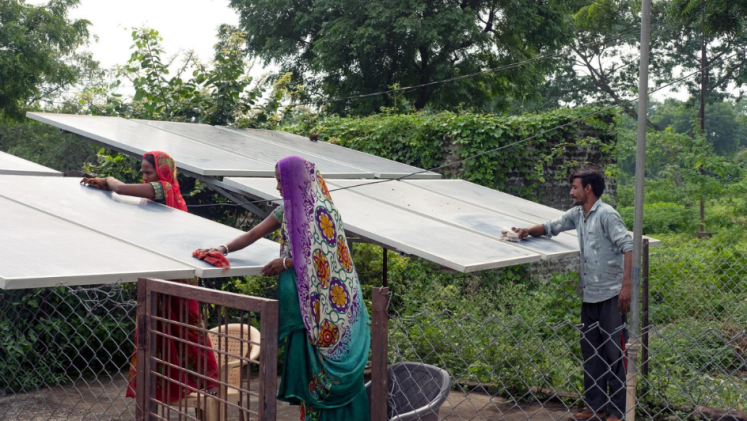In light of the World Day of Social Justice, our experts Simone Sandholz and Soenke Kreft explain the concept of just transition and why making our economic systems and infrastructures climate-neutral should put people and their livelihoods at the centre:
What is just transition?
Just transition describes the shift to a climate-neutral economy while securing the livelihoods of workers and their communities in the face of global warming. Sometimes it is also used in the context of shifting towards renewable energies. Either way it is more than a technological shift from the use of coal or oil towards solar or wind energy. Instead, it recognizes the need for a deeper transformation that also addresses people employed in these industries or related sectors, and the impacts of such deep change on communities and societies. Just transition therefore requires policies that are socially inclusive. Mitigating any negative social consequences that arise from implementing climate action is key, thereby supporting green economic policies.
Why should moving away from fossil fuels have anything to do with justice?
Even technology comes with justice concerns, for instance in terms of availability and access. Just because energy or an industry becomes carbon-neutral does not automatically mean that there are no potentially harmful consequences for environment or people. Just transition can be a powerful tool to address and reduce existing inequalities and power imbalances. This addresses workers in related industries and infrastructures whose job conditions or access to social services might be improved. Additionally, it refers to the end users by enhancing their access to services like energy, which is often worse for poorer households, but which is essential for socio-economic development. Lastly, the climate crisis is impacting the most vulnerable communities, making it crucial that just transition is bundled with meaningful action for climate resilience.
Where is it already happening?
Just transition approaches are taken up by many countries. At the UN Climate Action Summit In 2019, 46 nations committed to developing Just Transition strategies and since then more have joined. For example, Canada, Chile, the Czech Republic and Germany have implemented coal commissions with members from private and public bodies, to plan the phase-out of coal mining and coal-fired power generation. On a larger scale South Africa and Indonesia have launched Just Energy Transition Partnerships with international partners that both are worth billions of US Dollars.
Why link just transition to social protection?
Transitioning away from dominant energy sources or economic sectors affects the job market. Social safety nets, trainings and other support of those currently employed in these sectors is a priority. Here social protection instruments like unemployment insurance or temporary subsidies for affected low-income households can kick in. Fortunately, such mechanisms are already in place in many countries. In some places these have even been adapted to address climate change impacts. One of these countries is Indonesia, which outlined Adaptive Social Protection as one of its priorities, and has now also committed to a just energy transition.
How could this support the Global Agendas?
The Paris Agreement highlights just transition as an essential element to respond to climate change. The topic also has been at the core of COP27. The Sharm el-Sheikh Implementation Plan emphasizes the need for just transitions and their active support, which must take place under the overriding principle of climate justice. Within the UNFCCC there will be a dedicated work programme to the topic, and future climate summits will have to convene ministers on this topic. Just transition also has the potential to help achieve multiple Sustainable Development Goals, particularly Goal 1 on ending poverty and goal 7 on decent work, as it addresses their interlinkages. It thereby directly addresses the core principle of leaving no one behind.





